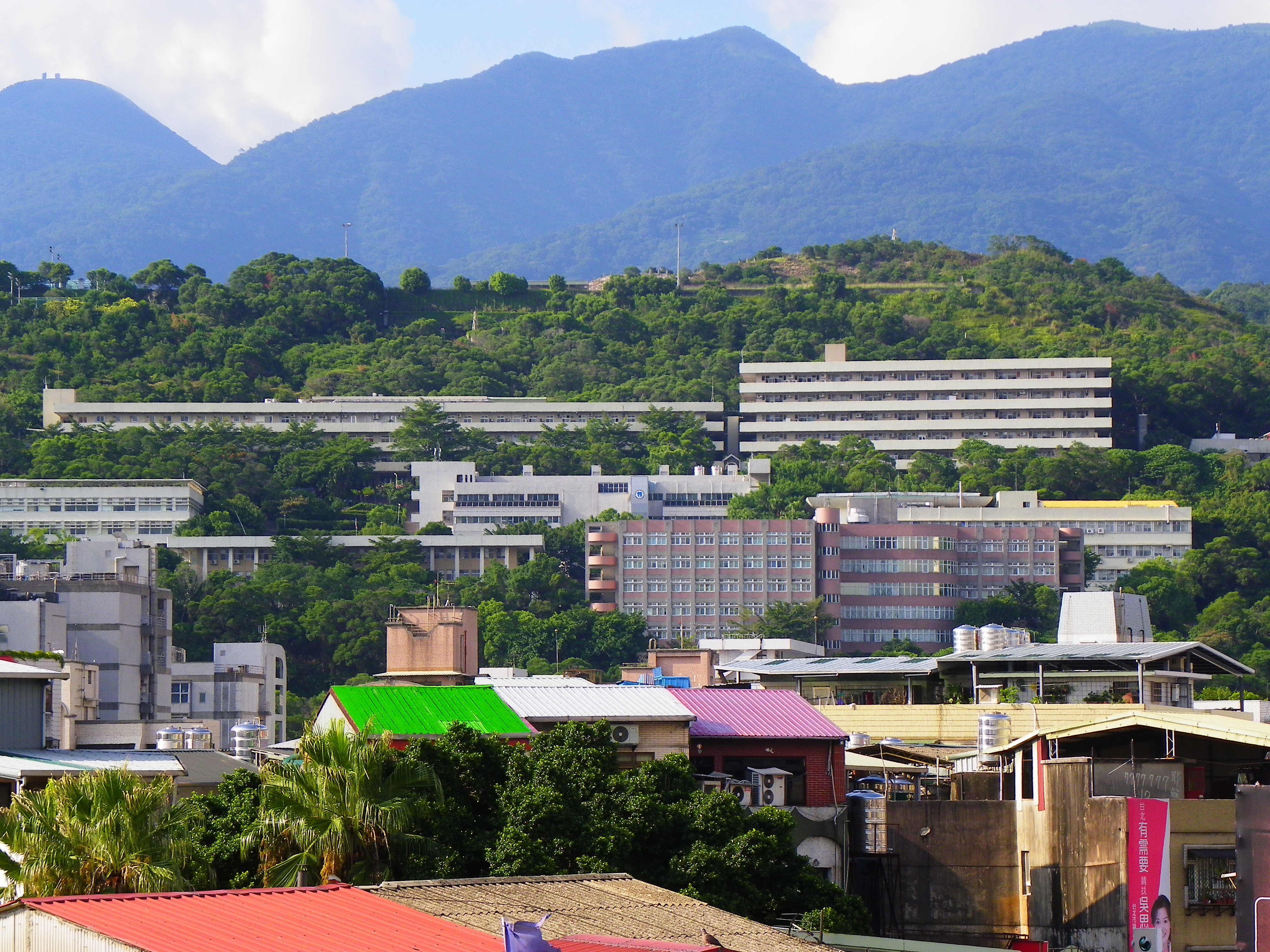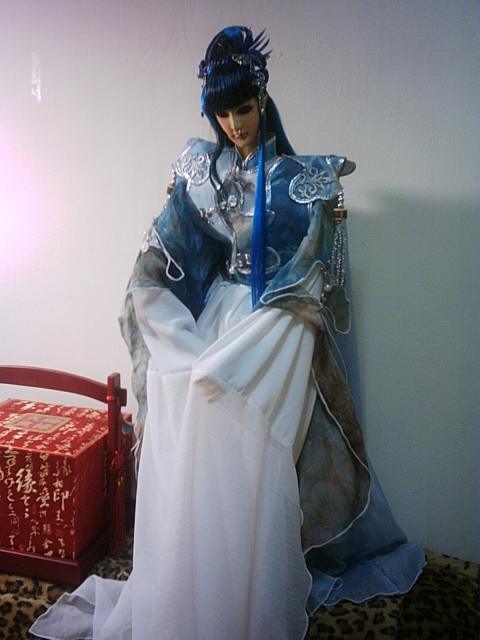|
Jody Chiang
Jody Chiang or Jiang Hui (), born Jiang Shuhui (), is a Taiwanese popular singer. She began recording in the 1980s and retired in 2015, having released 60 albums. Her trademark ballads and folk songs are typically sung in Taiwanese. Her role in Taiwan's popular music scene is often compared to that of Teresa Teng. She is the older sister of Chiang Shu-na. Early career Chiang's mother was a food vendor and her father a glove puppeteer. She grew up in a poor family and quit school at the age of ten to begin singing at warehouses and bars in Beitou, Taipei. She started her commercial singing career in 1981 with a Japanese language album, and was signed to Country Records two years later. Chiang held her first concert in April 2008. The singer has released 60 albums and won thirteen Golden Melody Awards over her career. Chiang is known as "Second Sister" amongst her fans, because she is the second eldest of four siblings. Chris Hung and Chiang are known as the King and Queen of T ... [...More Info...] [...Related Items...] OR: [Wikipedia] [Google] [Baidu] |
Jiang (surname)
Jiang / Chiang can be a Mandarin transliteration of one of several Chinese surnames: # Jiǎng (surname 蔣) ( 蔣), commonly spelled as Jiǎng, Chiang, Cheung, Jang, Chioh #Jiāng (surname 江) ( 江), commonly spelled as Jiāng, Chiang, Gong, Kong, Kang, Kiang #Jiāng (surname 姜) ( 姜), commonly spelled as Jiāng, Kang, Gang, Geung, Gung, Chiang, Keung, Keong, Kiang #強, commonly spelled as Jiàng, Gang, Geong, Geung, Khiang, Qiang, Chiang Meanings of ''Du'' (杜) * A type of wild rice, believed to be Zizania latifolia, also known as Manchurian wild rice * An interchangeable term for "Jiang(奖)". To reward sb. * A surname.汉典:蒋的解释https://www.zdic.net/hans/%E8%92%8B 彊 Jiang, Qiang, Chiang, (彊/强) is a Chinese surname. It originated during the 26th century BC. It derived from the deity Yujiang who was revered as the god of Water in Ancient China. Yujiang's descendants were given the surname Jiang (疆). During the Zhou Dynasty, in the Lu (state), t ... [...More Info...] [...Related Items...] OR: [Wikipedia] [Google] [Baidu] |
Beitou District
Beitou District is the northernmost of the twelve districts of Taipei City, Taiwan. The historical spelling of the district is Peitou. The name originates from the Ketagalan word ''Kipatauw'', meaning witch. Beitou is the most mountainous and highest of Taipei's districts, encompassing a meadow with rivers running through the valley which have abundant steam rising from them; the result of geothermal warming. The valley is often surrounded by mist shrouding the trees and grass. Beitou is famous for its hot springs. In March 2012, it was named one of the ''Top 10 Small Tourist Towns'' by the Tourism Bureau of Taiwan. History The area's hot springs had long been enjoyed by the aboriginal people of Taiwan. Shortly before the Japanese period a German sulfur merchant established the first hot spring club in Beitou. During early Japanese rule, ''Hokutō'' () was a village at the entrance of the well-known North Formosa sulfur district. Three Japanese extracting plants in this di ... [...More Info...] [...Related Items...] OR: [Wikipedia] [Google] [Baidu] |
People From Chiayi County
A person ( : people) is a being that has certain capacities or attributes such as reason, morality, consciousness or self-consciousness, and being a part of a culturally established form of social relations such as kinship, ownership of property, or legal responsibility. The defining features of personhood and, consequently, what makes a person count as a person, differ widely among cultures and contexts. In addition to the question of personhood, of what makes a being count as a person to begin with, there are further questions about personal identity and self: both about what makes any particular person that particular person instead of another, and about what makes a person at one time the same person as they were or will be at another time despite any intervening changes. The plural form "people" is often used to refer to an entire nation or ethnic group (as in "a people"), and this was the original meaning of the word; it subsequently acquired its use as a plural form of p ... [...More Info...] [...Related Items...] OR: [Wikipedia] [Google] [Baidu] |
Taiwanese People Of Hoklo Descent
Taiwanese may refer to: * Taiwanese language, another name for Taiwanese Hokkien * Something from or related to Taiwan (Formosa) * Taiwanese aborigines, the indigenous people of Taiwan * Han Taiwanese, the Han people of Taiwan * Taiwanese people Taiwanese people may be generally considered the people of Taiwan who share a common culture, ancestry and speak Taiwanese Mandarin, Hokkien, Hakka or indigenous Taiwanese languages as a mother tongue. Taiwanese people may also refer to the i ..., residents of Taiwan or people of Taiwanese descent * Taiwanese language (other) * Taiwanese culture * Taiwanese cuisine * Taiwanese identity See also * {{disambiguation Language and nationality disambiguation pages ... [...More Info...] [...Related Items...] OR: [Wikipedia] [Google] [Baidu] |
Living People
Related categories * :Year of birth missing (living people) / :Year of birth unknown * :Date of birth missing (living people) / :Date of birth unknown * :Place of birth missing (living people) / :Place of birth unknown * :Year of death missing / :Year of death unknown * :Date of death missing / :Date of death unknown * :Place of death missing / :Place of death unknown * :Missing middle or first names See also * :Dead people * :Template:L, which generates this category or death years, and birth year and sort keys. : {{DEFAULTSORT:Living people 21st-century people People by status ... [...More Info...] [...Related Items...] OR: [Wikipedia] [Google] [Baidu] |
1961 Births
Events January * January 3 ** United States President Dwight D. Eisenhower announces that the United States has severed diplomatic and consular relations with Cuba (Cuba–United States relations are restored in 2015). ** Aero Flight 311 (Koivulahti air disaster): Douglas DC-3C OH-LCC of Finnish airline Aero crashes near Kvevlax (Koivulahti), on approach to Vaasa Airport in Finland, killing all 25 on board, due to pilot error: an investigation finds that the captain and first officer were both exhausted for lack of sleep, and had consumed excessive amounts of alcohol at the time of the crash. It remains the deadliest air disaster to occur in the country. * January 5 ** Italian sculptor Alfredo Fioravanti marches into the U.S. Consulate in Rome, and confesses that he was part of the team that forged the Etruscan terracotta warriors in the Metropolitan Museum of Art. ** After the 1960 military coup, General Cemal Gürsel forms the new government of Turkey (25th gov ... [...More Info...] [...Related Items...] OR: [Wikipedia] [Google] [Baidu] |
Chris Hung
Chris Hung (; born 19 March 1963) is a Taiwanese enka and Hokkien pop singer and television host. Widely known as the "king of Taiwanese pop," he has won five Golden Melody Awards and one Golden Bell Award. The eldest of three sons born to singer Ang It-hong, Hung's relationship with his father deteriorated to estrangement due to the strict musical training Hung received from Ang, as well as Ang's multiple marriages. At the age of ten, Hung was sent to Japan for further education in music. After Hung's conversion to Christianity, he stopped drinking and reconciled with his father. Over the course of his career, Hung has worked closely with songwriter , and gained the nickname "King of Taiwanese pop" alongside Jody Chiang Jody Chiang or Jiang Hui (), born Jiang Shuhui (), is a Taiwanese popular singer. She began recording in the 1980s and retired in 2015, having released 60 albums. Her trademark ballads and folk songs are typically sung in Taiwanese. Her role ..., the ... [...More Info...] [...Related Items...] OR: [Wikipedia] [Google] [Baidu] |
Glove Puppet
Glove puppetry () is a type of opera using cloth puppets that originated during the 17th century in Quanzhou or Zhangzhou of China's Fujian province, and historically practised in the Min Nan-speaking areas such as Quanzhou, Zhangzhou, the Chaoshan region of Guangdong, and other parts of southern China. It had since established itself contemporarily as a popular art form in Taiwan. The puppet's head uses wood carved into the shape of a hollow human head, but aside from the head, palms, and feet, which are made of wood, the puppet's torso and limbs consist entirely of cloth costumes. At the time of the performance, a gloved hand enters the puppet's costume and makes it perform. In previous years the puppets used in this type of performance strongly resembled "cloth sacks," hence the name, which literally means "cloth bag opera." Glove puppetry performances Glove puppetry (pò͘-tē-hì) performances, similar to some types of Chinese opera, are divided into a first half and a seco ... [...More Info...] [...Related Items...] OR: [Wikipedia] [Google] [Baidu] |
Xikou, Chiayi
Xikou Township or Sikou Township () is a rural township in Chiayi County, Taiwan. Name Xikou's former name () refers to the confluence of two rivers, which are Huasing River (華興溪) and Sandie River (三疊溪) coming from the northwest and southwest respectively. History Han Chinese firstly settled around the area of Xikou Township since more than 200 years ago. In early 1980s, its population peaked at 21,000 but has been declining since then. Geography It has a population total of 13,658 and an area of 33.0463 km2. It is the smallest area of any city or township of Chiayi County. The township land is generally well-watered and flat. Administration The township consists of 14 villages, which are Bencuo, Chailin, Deisi, Linjiao, Liougou, Meibei, Meinan, Miaolun, Pingding, Sibei, Sidong, Sisi, Youdong and Yousi. Economy Agriculture is the predominant industry in the county. Crops include tomatoes and muskmelon. There are only a few factories in the area. Tourist at ... [...More Info...] [...Related Items...] OR: [Wikipedia] [Google] [Baidu] |

_1938.jpg)

